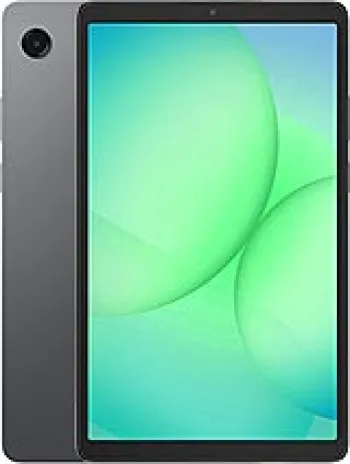
Overview of the Samsung ZV30
The Samsung ZV30, released in the fourth quarter of 2005, represents a notable example of mid-2000s mobile technology. While it is now discontinued, it once stood out for its unique features in the feature phone category. With its compact design and essential functionalities, the device was aimed at users looking for basic mobile communication capabilities without the complexity found in modern smartphones.
Design and Build Quality
Measuring 89 x 47 x 25.5 mm and weighing 110 grams, the Samsung ZV30 offers a compact and easily portable design. Its build quality is reflective of the robust design philosophies of the mid-2000s, featuring durable plastic materials and a convenient form factor. The use of a mini-SIM card slot highlights its compatibility with networks of the time, specifically GSM and UMTS technologies.
Display
The device boasts a TFT display supporting 256K colors with a resolution of 176 x 220 pixels. While the display size is not specified, the resolution was standard for feature phones during that era, providing users with sufficient clarity for text and simple graphics.
Camera Capabilities
Equipped with a 1.3 MP camera with a unique 180-degree rotating lens and LED flash, the Samsung ZV30 was designed to accommodate basic photography needs. While it may not meet the standards of today’s smartphone cameras, it was capable of capturing satisfactory images and could record CIF-quality video.
Memory and Storage
Internally, the device features 40MB of storage, which was adequate for its primary functions and storing essential data such as contacts and text messages. Memory expansion is possible through a dedicated microSD slot, allowing users to store additional media files. The phone’s phonebook supports up to 1000 entries with photocall capabilities.
Battery Performance
The Samsung ZV30 is powered by a removable Li-Ion 1000 mAh battery, identified by the model BST474ASEC/STD. This battery offers a stand-by time of up to 260 hours and up to 3 hours and 20 minutes of talk time. This performance was adequate for users not needing constant connectivity and served well for standard daily use.
Communication Features
In terms of connectivity, the device supports GSM/UMTS technologies, ensuring compatibility with 2G and 3G network bands, specifically GSM 900/1800/1900 and UMTS 2100. Although WLAN and GPS functionality are absent, basic data transfer is facilitated through Bluetooth 1.1 and an infrared port. The lack of a standard 3.5mm audio jack reflects its focus on essential features.
Multimedia and Sound
The device includes a loudspeaker and supports vibration alerts alongside downloadable polyphonic and MP3 ringtones, providing customizable sound options even without a 3.5mm jack. This configuration caters to users who prioritize basic multimedia needs without requiring advanced audio features.
Software and Applications
Running on a feature phone operating system, the Samsung ZV30 supports Java MIDP 2.0 applications, allowing users to download and run basic games and apps. Its built-in email, SMS, and MMS capabilities positioned it as a suitable option for communication. The WAP 2.0/xHTML browser facilitated simple mobile web browsing.
Additional Features
The Samsung ZV30 was offered in a silver color option. It provided a few preloaded games with the option to download more for entertainment purposes. Safety and regulatory compliance are underlined by its SAR levels of 0.94 W/kg for the head and 0.45 W/kg for the body, ensuring user health and safety standards are met.
Conclusion
The Samsung ZV30 stands as a relic of early mobile communication technology, embodying the transitional period before the widespread adoption of smartphones. Its design and features reflect a time when mobile phones were used primarily for calling, messaging, and limited multimedia applications. Though discontinued, the ZV30 remains a notable example of Samsung's innovation during the early 2000s, providing the foundational technology that has influenced subsequent mobile developments.
Main Features of Samsung ZV30
- Supports GSM/UMTS Network Technology
- Compact Dimensions: 89 x 47 x 25.5 mm
- Lightweight: 110 g
- Display: TFT with 256K colors, 176 x 220 pixels
- Expandable Memory: microSD Card Slot
- 1.3 MP Camera with 180-degree rotating lens and LED flash
- Bluetooth 1.1 and Infrared Port
- Capable of sending SMS, MMS, and Email
- WAP 2.0/xHTML Browser
- Java support: MIDP 2.0
- Removable Li-Ion 1000 mAh Battery with up to 260 hours standby time
- Available in Silver Color
Disadvantages of Samsung ZV30
- Discontinued model, no support or updates available.
- Lacks modern connectivity features: No WLAN, no GPS, and outdated Bluetooth 1.1.
- No 3.5mm headphone jack for audio output.
- Limited internal storage of only 40MB, although expandable via microSD.
- Basic camera features with just a 1.3 MP main camera and no selfie camera.
- Low display resolution of 176 x 220 pixels with unspecified screen size.
- Proprietary USB port, making it less convenient for connectivity and charging.
- Limited talk time of only up to 3 hours and 20 minutes.
- No FM radio support, limiting media listening options.

View Also
More Phones
All Rights Reserved +14266 Phones © Mobilawy 2025

























